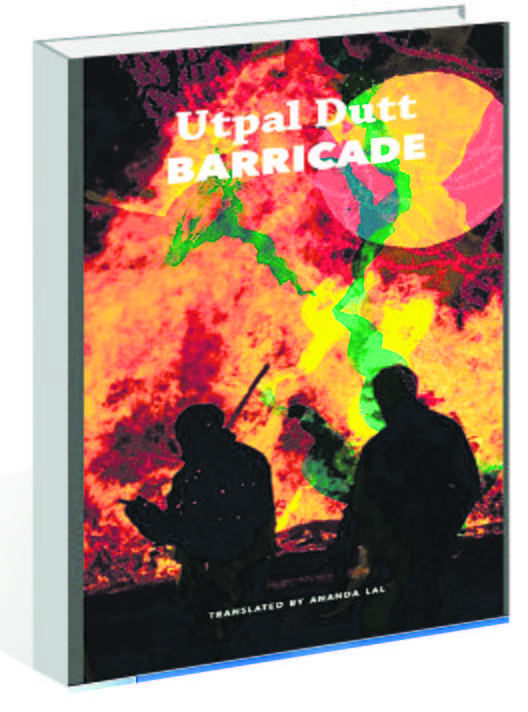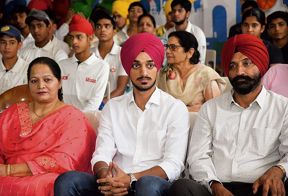Barricade by Utpal Dutt. Translated by Ananda Lal. Seagull Books. Pages 126. Rs499
Book Title: Barricade
Author: Utpal Dutt. Translated by Ananda Lal
GJV Prasad
Utpal Dutt (1929-1993) was a major figure in post-Independence Indian theatre, one of the tallest and most versatile of theatre practitioners in the second half of the 20th century. A director, writer, actor — simply someone immersed in theatre and cinema and who wrote incisively on both — his oeuvre is yet to be fully translated into English. This translation of a major play by him, written and performed in 1972, is a welcome beginning to redress this.
Ananda Lal, well-known theatre scholar and translator, gives us a critical edition, one where he has compared different published versions of the play and a televised production. He has also considered personal recollections by the playwright’s daughter. So, the footnotes merit as much attention as the text itself — this also because they give us clear annotations about the events and people dramatised in the play. Utpal Dutt based this play “loosely on the Nazi takeover in 1933 as depicted in the fictionalised chronicle ‘Unsere Strasse’ by Jan Pietersen”.
The rise of the Nazi party, using the democratic process of elections — subverting every step in this process and using a willing President to install them — is the stuff of the play. Only the communists resist them actively. The battle is fought in every locality and on every street as the Nazis take over with the help of the state apparatus. The polls are rigged, the populace is frightened into silence, and it is too late when many wake up to reality. Dutt wrote this play to reflect on the Bengal of his times when the Congress ruled the Centre and battled with the communists in the state. The play did not speak directly of his times, but spoke to his times. As it does to ours. The Nazi stormtroopers are seen working with the state apparatus. Imprisonment, beatings, lack of trials, denial of bail, ‘encounters’, killings, all are depicted as routine. Ultimately, the judiciary and the media — institutions that should safeguard democracy — are compromised and act to the will of the state.
The strength of ‘Barricade’ is that it works as a play. It is not a piece of invective or mere propaganda. We have Germany of the 1930s, warts and all. The heroes are not above prejudices and personal preferences and predilections. The play does show how individuals can take on the system, can question and not accept what is being fed to them, but without an organised strong resistance, with the fall of every institution, the individuals will become only glorious martyrs.
As two major characters say in the last scene of the play when they join the barricades, they have no other choice but to fight. Inge, the wife of a popular leader killed by Nazis disguised as communists, says, “I understood after seeing a lot — a lot of things, that to die standing up is better than to live kneeling down.” A believing Christian, she says that she thought they would only come for the communists, but understood that “then the others’ turns come one by one, then — then one day I see the entire country’s a jailhouse”. The intellectual Strubbel, who thought that a retreat into the world of books would keep him safe and untouched by politics, is at the barricades too because when people are jailed and killed for their views, what else can you do but fight “to save education and inspiration, wisdom and intelligence, knowledge and science….”
A play written in and for the early 1970s’ West Bengal, ‘Barricade’ will be relevant again and again because people never learn from history. Ananda Lal’s brilliant translation gives us a play to be read aloud, performed. It is a translation for the performer, the director, as much as for the reader.














